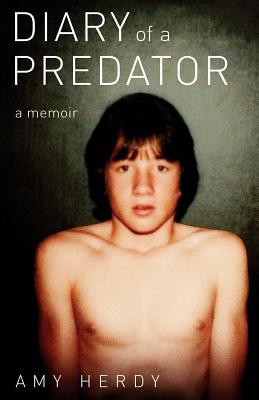This groundbreaking tour de force presents the gripping, true account of one of America's most notorious serial rapists and the tough female journalist assigned to cover his case.
Following an exhaustive manhunt and his capture in 2005, Brent Brents sent letters and his journal to Denver Post reporter Amy Herdy -- with the condition that she alone tell his story. Here, then, in his raw and uncensored words, Brents reveals shocking details about his childhood abuse and the monstrous acts he later committed. Going way beyond just the facts, he gives us an unprecedented look inside the twisted mind of a sociopath.
At the same time, Amy has a personal story to tell. Rocked to the core by Brents' disturbing case, she sets out to understand this ruthless criminal only to be confronted with her own troubled past. Ultimately, she must make a choice that will change her life forever.
Katie S. says:
"This book was hard for me to read, and this review is hard for me to write. I don't write very many reviews, as you can see, because with all the books I see day in and day out, not many of them end up stopping me in my tracks. But reading about sexual assault from the viewpoint of the perpetrator stoked my curiosity. I think there are a lot of people like me out there who wish they could understand a little more about why horrible things happen in the world. I took an entire history course on Hitler in college just so I could try and wrap my mind around WHY someone would be so cruel. It was emotionally exhausting. I still don't understand it, but I don't think that Hitler is Satan either. That's easy and dangerous thinking. Anytime one person believes that another person is less than human, no matter what, I think it's dangerous.
I'm not sure I believe in evil. If you steadfastly believe that people are either good or evil, then you might struggle with the facets of humanity revealed in Amy Herdy's book. As a crime reporter formerly with the Denver Post, she recounts the horrific events surrounding the attacks and eventual capture of Brent Brents in Denver and the Front Range. I'll tell you, it was very difficult and taxing to read through the descriptions of what Brents inflicted upon his victims. But learning about the humanity behind the person most people would call an evil monster was fascinating, comforting, and instructive.
The book has been available in our stores for a few weeks now, and after I placed it in our Rocky Mountain Authors display, I noticed that someone had been deliberately turning the book over so that the back cover faced out. The picture on the front is of Brents, 13 years old, summer-day shirtless and looking afraid. It's not graphic by a censor's standards, surely I've seen plenty of shirtless boys running around in summertime Water World or Elitch's commercials. But I know why people are turning it over. It's the same reason I had to cover up the cover with a folded sheet of paper while reading. Most of us navigate our world and each other with non-verbal signals. And there is a very strong non-verbal signal emanating from that picture. It says, "I'm hurt, I'm scared, I've been wronged, I've been violated." That's really hard to face, really hard to deal with.
So when I find the book overturned again, I sigh, and turn it back around, because I believe that as Americans, we must face each other bravely, and thereby commit to tolerance and understanding. Amy Herdy and Brent Brents wrote the book together (Brents wrote through letters from prison) in the hope that no one else will endure such suffering again at the hands of another human being. But the message here is that when one person hurts another, both are hurt. And it's so unnecessary.
Who will buy this book? I think it's a great book for teachers to have on hand at home. People who work in education would do well to understand the process behind the making of a sexual predator. Educators play an important role in recognizing and identifying victims and perpetrators early on in the life of the person in question. I also think that people who are involved in the fields of sociology, psychology, and journalism would benefit from having a copy stashed on their bookshelves. Journalists may take heart from knowing Ms. Herdy's experience and her struggles with balancing a home life and a career that trod some very disturbing paths. Social workers and therapists might be able to synthesize their work with the steps that could have been taken to prevent Brents from being victimized and ending up in prison for life. And readers like me, well, they approach the topic with curiosity, fearful and wishing to learn enough to stay safe. Readers like me want to do whatever they can to NOT become victims themselves. So they prepare, they educate, they observe, they "trust their gut" as Herdy would say, and they remember that there is good in everyone. So they keep this book on their shelf to remind them to recognize and honor goodness EVERYWHERE it is found."

No comments:
Post a Comment